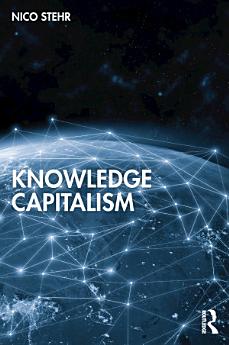關於這本電子書
In his newest book, Stehr builds on his classic book Knowledge Societies (1994) to expand the concept toward one of knowledge capitalism for a now, much-changed era. It is not only because of the onset of the Covid-19 pandemic that we are living in a new epoch; it is the idea that modern societies increasingly constitute comprehensive knowledge societies under intensive capitalism, whereby the legal encoding of knowledge through national and international law is the lever that enables the transformation of the knowledge society into knowledge capitalism. The Trade Related Aspects of Intellectual Property Rights agreement, negotiated between 1986 and 1994 as part of the World Trade Organization, is the backbone of the modern society and marks a clear historical demarcation, and although knowledge capitalism is primarily an economic development, the digital giants who are in the driver’s seat have significant effects on the social structure and culture of modern society.
關於作者
Nico Stehr is Karl Mannheim Professor of Cultural Studies Emeritus at the Zeppelin University, Friedrichshafen, Germany. He is a fellow of the Royal Society (Canada). He is one of the authors of the Hartwell Paper on climate policy. His recent books include The Power of Scientific Knowledge (with Reiner Grundmann, Cambridge University Press, 2012); Is Liberty a Daughter of Knowledge? (Cambridge University Press, 2016); Understanding Inequality: Social Costs and Benefits (with Amanda Machin, Springer, 2016); Knowledge: Is Knowledge Power? (with Marion Adolf, Routledge, 2017); Society & Climate (with Amanda Machin, World Scientific, 2019); Money. A Social Theory of Modernity (with Dustin Voss, Routledge, 2020).
為這本電子書評分
請分享你的寶貴意見。
閱讀資訊
智能手機和平板電腦
手提電腦和電腦
你可以使用電腦的網絡瀏覽器聆聽在 Google Play 上購買的有聲書。
電子書閱讀器及其他裝置
如要在 Kobo 等電子墨水裝置上閱覽書籍,你需要下載檔案並傳輸到你的裝置。請按照說明中心的詳細指示,將檔案傳輸到支援的電子書閱讀器。







